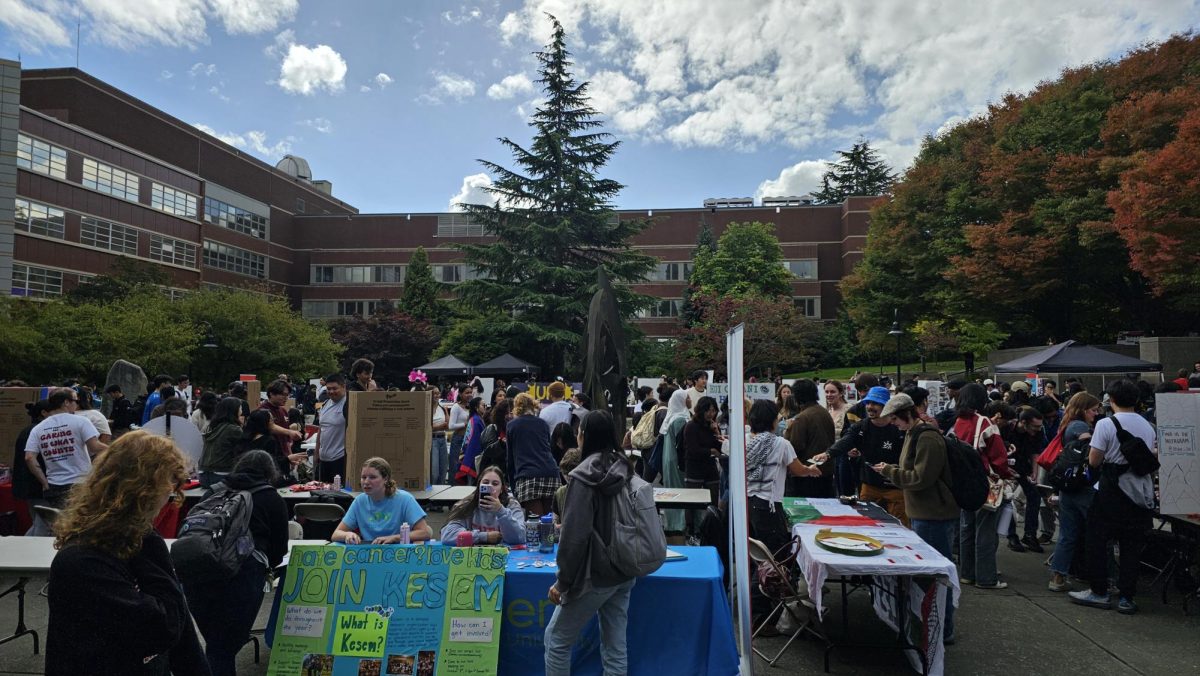The United States government, along with the United Kingdom and France, launched missile strikes at Syria last Saturday, April 14. Though the Syrian Civil War has been going on for seven years, this is the second time that the U.S. has intervened in Syria.
The goal of these strikes was to “deter the Syrian Regime’s chemical weapons capability and deter their use,” according to UK Prime Minister, Theresa May. Three sites were hit as a result: A scientific research center in Damascus, a chemical weapons storage facility, located west of Homs, and a chemical weapons equipment storage facility and command post near Homs.
The strikes carried out two weeks ago wasn’t the first time that the United States has gotten involved in Syria. President Obama attacked in Aug and Sept. of 2014, using airstrikes to strike ISIS in Iraq and Syria. President Obama’s attack came as a relief to many Syrians, as they had wanted the U.S. to intervene.
Three years following the first intervention, President Trump launched Tomahawk cruise missiles to target an air base in Syria after President Bashar al-Assad’s regime used chemical weapons attack on Syrian citizens on April 4, 2017. By attacking Syria, Trump was upholding Obama’s red line. Obama’s red line is that if Syria used chemical weapons again, the United States would not hesitate in intervening. President Obama also attacked in August and September of 2014, using airstrikes to strike ISIS in Iraq and Syria.
American Politics professor at Seattle U Patrick Schoettmer was not particularly surprised by the U.S.’ involvement. “The Middle East has long been a place where great power politics has sought proxy conflicts, and Syria is no stranger to these outside manipulations,” Schoettmer said. “Furthermore, the U.S. has tended to look poorly on the use of WMDs [weapons of mass destruction] and, even when it otherwise has no interest in a conflict, tends to respond to the use of such weapons. However, I am surprised that the response has been so muted. It suggests to me that the President is reluctant to intervene in the conflict.”
The conflict in Syria is complex, and has many reasons for its causes People have dedicated their entire research careers to understand the conflicts in the Middle East, the Syrian war and why it came to be. Be that as it may,, Although Washington State seems far removed from the conflict, those that want to can get involved can in some way.
Tyrone Brown, Assistant Director of the Office of Multicultural Affairs (OMA) explained how people who want to get involved can.
“People will say that the issue specifically of Syria and our connection to it is complex, problematic, there are a lot of things about it that are difficult,” explained Brown. “We are in an institution of learning, so just within that context, there is the opportunity for people to do their own research and to be sharing that information with others, to be in community and to be in conversation with their colleagues about the issue. I think there’s a lot of ways that if people can use their imagination, that people can find ways to speak to this and to not feel powerless in the midst of all this conflict.”
To learn more about this particular conflict, Seattle U students can take a multitude of classes which explain these nuances. Professor Nova Robinson in the history department, Professor Onur Bakiner in the political science department and many others have classes going in depth about the conflict. If you’re unable to attend those classes, Schoettmer explained that reading from other points of views (POVs) can also help to understand the conflict. “Reading English-language versions of foreign news services, especially regional ones like Ha’aretz (Israel) and al-Jazeera (Qatar), as well as foreign news services with deep ties to the region such as Le Monde (France) or the BBC (U.K.),” Schoettmer explained. “Managing biases mostly just requires reading from different POVs. No news is entirely free of bias, but by getting different POVs you can get closer to the true center of the situation.”
Rania may be reached at
[email protected]









